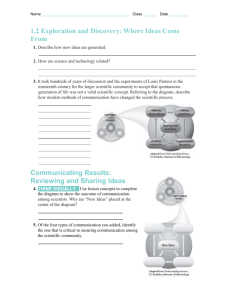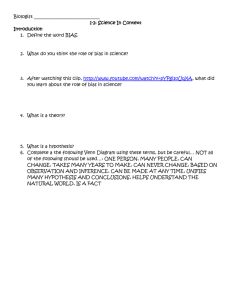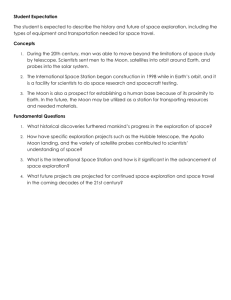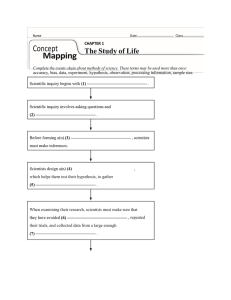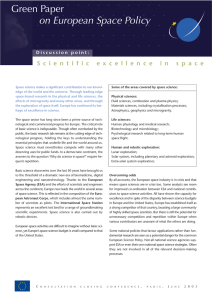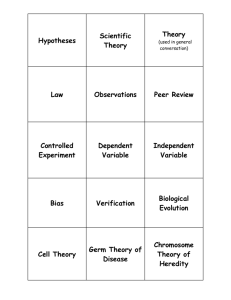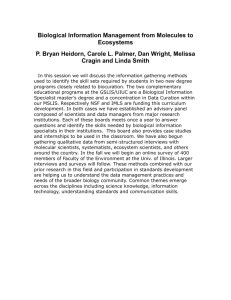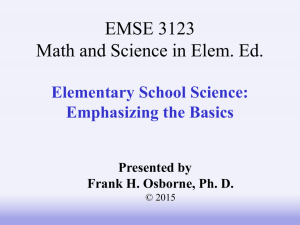1.2 wks
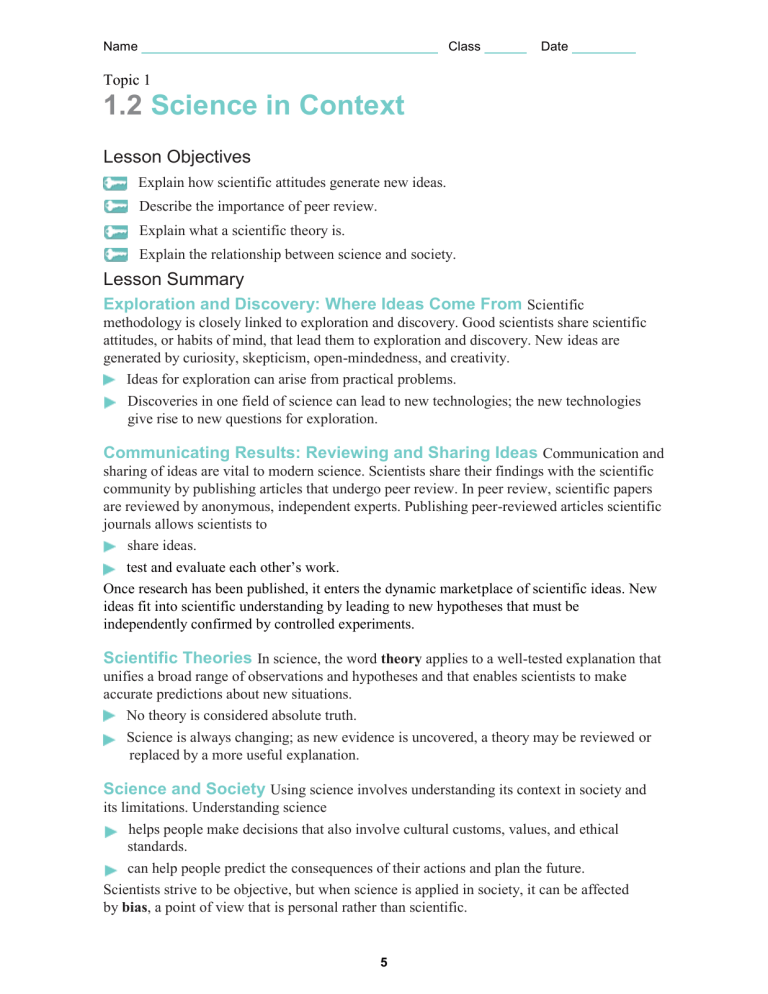
Name
Topic 1
1.2
Science in Context
Class Date
Lesson Objectives
Explain how scientific attitudes generate new ideas.
Describe the importance of peer review.
Explain what a scientific theory is.
Explain the relationship between science and society.
Lesson Summary
Exploration and Discovery: Where Ideas Come From
Scientific methodology is closely linked to exploration and discovery. Good scientists share scientific attitudes, or habits of mind, that lead them to exploration and discovery. New ideas are generated by curiosity, skepticism, open-mindedness, and creativity.
Ideas for exploration can arise from practical problems.
Discoveries in one field of science can lead to new technologies; the new technologies give rise to new questions for exploration.
Communicating Results: Reviewing and Sharing Ideas
Communication and sharing of ideas are vital to modern science. Scientists share their findings with the scientific community by publishing articles that undergo peer review. In peer review, scientific papers are reviewed by anonymous, independent experts. Publishing peer-reviewed articles scientific journals allows scientists to share ideas. test and evaluate each other’s work.
Once research has been published, it enters the dynamic marketplace of scientific ideas. New ideas fit into scientific understanding by leading to new hypotheses that must be independently confirmed by controlled experiments.
Scientific Theories
In science, the word theory applies to a well-tested explanation that unifies a broad range of observations and hypotheses and that enables scientists to make accurate predictions about new situations.
No theory is considered absolute truth.
Science is always changing; as new evidence is uncovered, a theory may be reviewed or replaced by a more useful explanation.
Science and Society
Using science involves understanding its context in society and its limitations. Understanding science helps people make decisions that also involve cultural customs, values, and ethical standards. can help people predict the consequences of their actions and plan the future.
Scientists strive to be objective, but when science is applied in society, it can be affected by bias , a point of view that is personal rather than scientific.
5
Name Class Date
Exploration and Discovery: Where Ideas Come From
1.
Describe how new ideas are generated.
2.
How are science and technology related?
3.
It took hundreds of years of discussion and the experiments of Louis Pasteur in the nineteenth century for the larger scientific community to accept that spontaneous generation of life was not a valid scientific concept. Referring to the diagram, describe how modern methods of communication have changed the scientific process.
Communicating Results:
Reviewing and Sharing Ideas
4.
THINK VISUALLY
Use lesson concepts to complete the diagram to show the outcome of communication among scientists. Why are “New Ideas” placed at the center of the diagram?
5. Of the four types of communication you added, identify the one that is critical to ensuring communication among the scientific community.
6
Name
Scientific Theories
Class Date
6.
A typical dictionary will have different definitions for the word theory . It will include a definition that describes how scientists use the term, but it will also define theory as speculation, or an assumption, or a belief. Are these common definitions of theory synonyms (words similar in meaning) or antonyms (words opposite in meaning) to the definition of a scientific theory? Explain your thinking.
For Questions 7 –11, identify whether each statement is a hypothesis or a theory. For a hypothesis, write an “H” on the line. For a theory, write a “T.”
7.
The rate that grass grows is related to the amount of light it receives.
8.
All life is related and descended from a common ancestor.
9.
The universe began about 15 billion years ago.
10.
New tennis balls bounce higher than old tennis balls.
11.
Caffeine raises blood pressure.
Science and Society
12.
How can bias affect the application of science in society? What role does a good understanding of science play in this phenomenon?
Apply the
Big
idea
13.
What is it about science, as a way of knowing, that makes it self-correcting?
7
